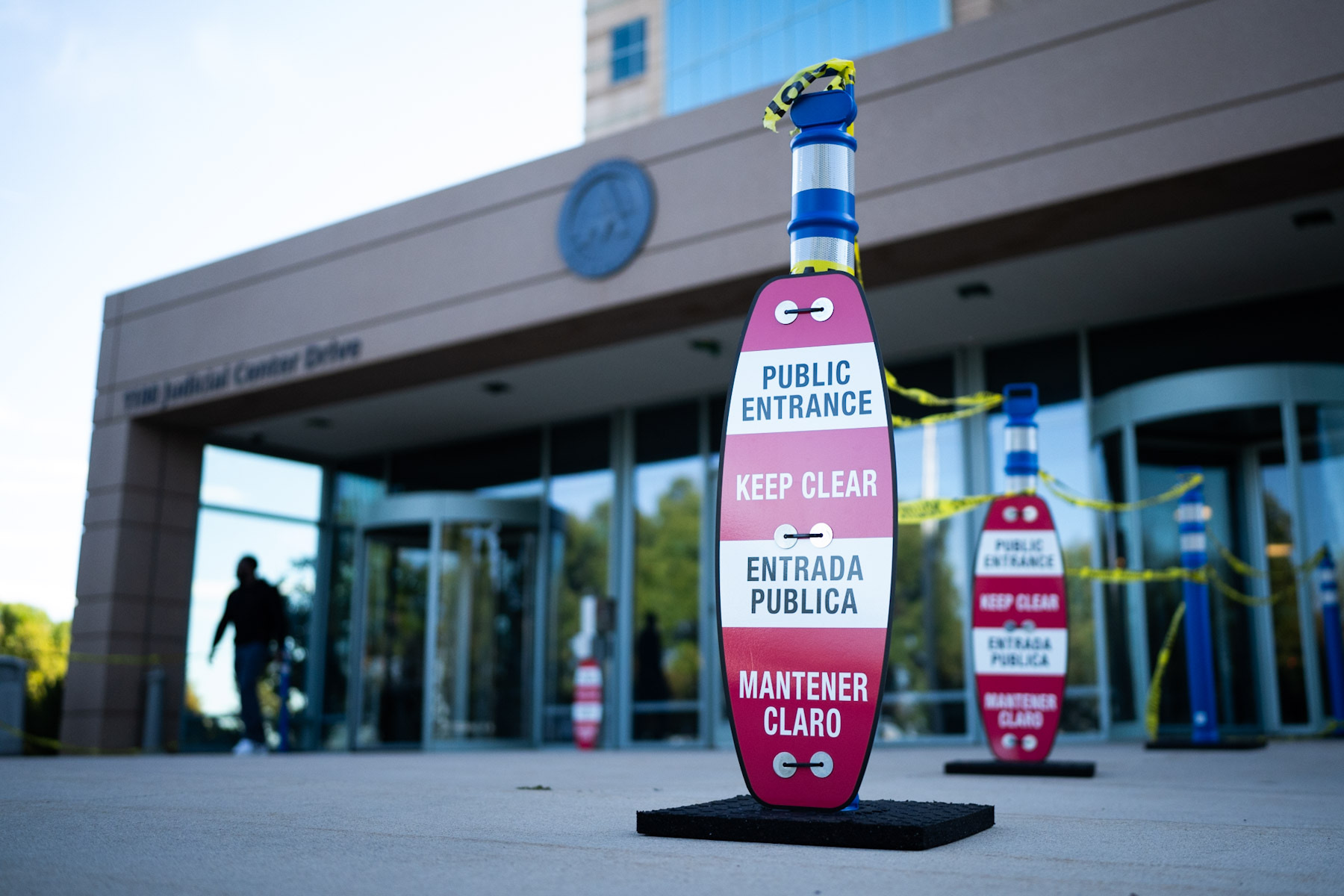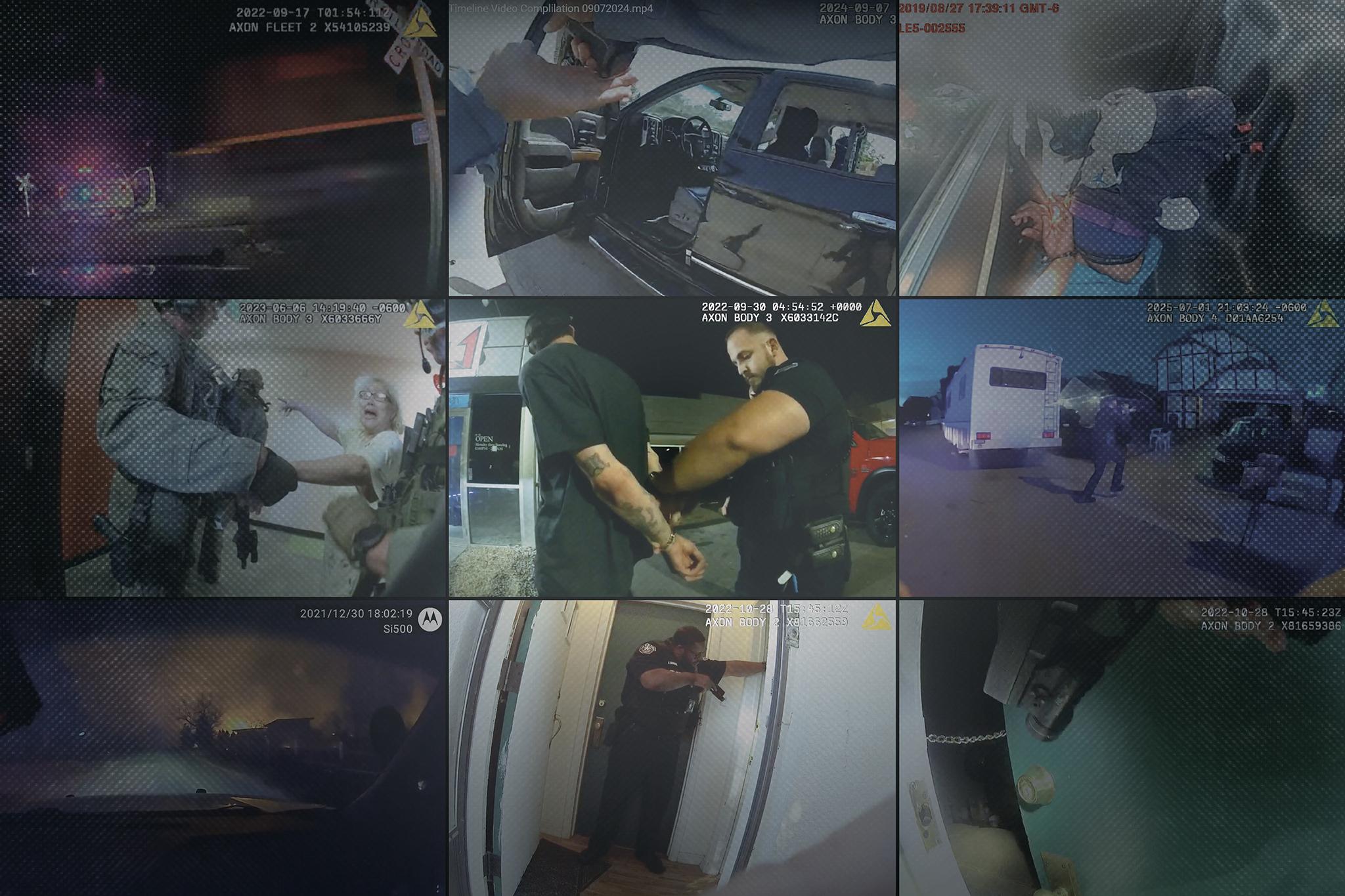
Whether Elijah McClain’s death came down to egregious recklessness in ignoring police training, a mishandled series of carotid holds or a large dose of ketamine is going to be what jurors will ultimately have to wrestle with in the first trial for McClain’s death in Adams County.
Opening arguments on Wednesday marked the start of the trial for Randy Roedema and Jason Rosenblatt, two officers who were second and third on the scene the night McClain was forcibly arrested in 2019 in Aurora. He was restrained by three officers and then given ketamine by paramedics. He lost his pulse on the scene and later died at the hospital.
The officers face charges of criminally negligent homicide, manslaughter and assault. They have pleaded not guilty.
Prosecutors said that Roedema and Rosenblatt repeatedly ignored their training on use of force and attending to people — even those they are arresting — when they say they can’t breathe, which McClain yelled out seven times.
“You will hear no evidence, none, that Elijah McClain did anything criminal that night,” said Jonathan Bunge, a prosecutor from the attorney general’s office. “They grabbed him because he looked suspicious.”
On this point, defense attorneys agreed.
Attorney Harvey Steinberg, who is representing Rosenblatt, showed surveillance photos of McClain at a Shell gas station buying iced tea moments before a motorist called 911 and said he saw a man walking who looked “sketchy.”
McClain was wearing a black runner’s mask over his nose and his mouth. His family and friends said he often bundled up because he was cold. They showed a photo of McClain a few weeks before the arrest at a party at Massage Envy, where he worked as a therapist, bundled up in August.
“Damned if you do and damned if you don’t,” Steinberg told the jury, showing an enlarged photo of McClain wearing that black ski mask inside of the gas station. “God forbid a guy who looks like that … goes and commits a crime … You are an officer. You were dispatched to this. You were told to go deal with this.”
The night of Aug. 24, 2019
When officers approached McClain, they went hands-on with him within a few seconds. Prosecutors said that was unnecessary and escalating a situation that didn’t need to be. They are trained to use de-escalation tactics whenever possible.
“There is nothing wrong with the police being responsive to a 9-1-1 call, driving over to see what’s taking place,” Bunge said. “The issue is what happened when they got there.”
Defense attorneys said the officers yelled out for him to stop several times, but that McClain had headphones on and didn’t hear them.
“Well, that’s not radioed in the dispatch. They didn’t tell my clients this person has earbuds in,” said Reid Elkus, who is representing Roedema. “What they know is when there was an order to stop, he didn’t. They said it six times, he didn’t stop.”
Defense attorneys said the officers had to escalate the situation because McClain reached for their gun. An officer, in the struggle with McClain on the ground, can be heard saying that McClain reached for Rosenblatt’s gun. But on the scene with a supervising sergeant a few minutes later, that officer, Rosenblatt, said he didn’t feel anything, according to body-worn camera footage.
Prosecutors said that’s because it didn’t happen — and even if someone was flailing around near the weapons, they are holstered and protected and so it would be difficult for someone to get it.
The officers put McClain in two carotid holds, which is against police training policy. No one is ever supposed to receive two in one setting. Prosecutors pointed out that the officers had fresh training that same month on how to apply a successful carotid hold.
At this point in the struggle, McClain started throwing up into his runner’s mask. Prosecutors said he also was screaming out he couldn’t breathe because he was inhaling that vomit.
They said the autopsy report said his lungs weighed twice what they should weigh given his body weight because of the extra fluid. McClain, at this point, was pinned to the ground by two officers — both of whom weighed 45 and 85 pounds more than McClain, who weighed 140 pounds.
Defense attorneys said one of the carotid holds was unsuccessful, and so they had to do it again. They also pointed out that the extra fluid in McClain’s lungs could be saliva caused by the ketamine dosage given by paramedics, not vomit.
'The death of Elijah McClain is a tragedy'
“Just because a tragedy occurs doesn’t mean criminality occurred,” Elkus said. “The death of Elijah McClain is a tragedy. No one is going to tell you differently.”
Part of the defense’s strategy in the next several weeks of scheduled testimony will be to talk about how the “politics” of the Black Lives Matter movement and people taking to the streets demanding justice is the reason these officers are now facing charges.
Initially, this case was dismissed by the then Adams County District Attorney Dave Young, in part, because the first autopsy had an undetermined manner and cause of death.
Lawyers said that a pathologist will take the stand and say that the Aurora Police Department withheld key body-camera footage that the pathologist only saw during the grand jury investigation.
The case was closed in Aurora and within the Aurora Police Department until George Floyd’s murder in Minnesota sparked protests around the world. McClain’s name was among those other unarmed Black people who were killed by police as reasons for police reform.
“Politics,” Steinberg told the jury with a half smile.
During the grand jury investigation, the coroner amended the autopsy to death by ketamine, which was administered by the paramedics. Defense attorneys will point fingers at the paramedics for causing McClain’s death.
“Politics gets involved and an amended report comes,” Steinberg said. “I just ask one thing, please be fair, don’t let emotion or sympathy enter into it and don’t let politics enter into this, please, please.”
Sheneen McClain, Elijah’s mother, was in the courtroom throughout the day sitting next to lawyers.
She didn’t want to give interviews during the trial. But during the opening arguments, in the front row behind prosecutors, she stared at the enlarged photos of Elijah shown by attorneys and quietly removed her glasses and wiped tears from her eyes.








